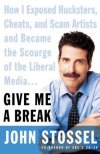|
Give Me a Break How I Exposed Hucksters, Cheats, and Scam Artists |
John Stossel |
4/17/4
|
|
| First Edition
Excellent. Should be required reading for every high school student. Explains why more government isn't better government. Explains how the US has gone from being self-reliant to competing for victimhood and how that's causing businesses to crush free speech. |
|||
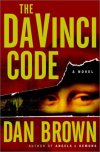
|
The Da Vinci Code |
Dan Brown |
4/1/4
|
| Anti-Christians, and especially anti-Catholics will love this book as it provides everything necessary to completely erase all but the firmest of faiths. Told in "real time" akin to the TV show 24, it's filled with clues and puzzles the reader is challenged to solve. Those wishing to restore their faith in Christ can turn to the Gnostic texts, available freely on the web, which, like the traditional gospels, also attest to Christ's divinity, without the taint of having possibly been rewritten by the 3rd century church. Those wishing to have their faith in the Catholic church restored will need to look elsewhere. | |||
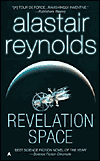
|
Revelation Space |
Alastair Reynolds |
1/18/4
|
| Borrowed from: Cesar
Very good. NOT obvious at all that it's his first book. In the 2360's or so humanity has subdivided into various sorts of subspecies due to genetic engineering and adding machines to people. Archeologists find relics from alien races and learn about galactic history. |
|||
|
Bias A CBS Insider Exposes How |
Bernard Goldberg |
8/6/3
|
|
| Liked it, good information, but kind of obvious it's his first book. Seems to say the same thing over and over, just in slightly different ways. Still, glad I read it. | |||
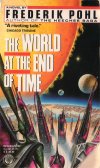
|
The World at the End of Time |
Frederik Pohl |
7/14/3
|
| Borrowed from: Rob
Not bad. Interesting concept of an energy being that lives inside of stars. Also, as the name implies, the story goes pretty far into the future. Sometimes it felt like the author was teaching a class in particle physics, but otherwise it was fine. |
|||
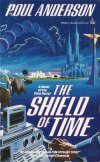
|
|
|
4/7/3
|
| Borrowed from: Rob
Nice. A little on the predictable side, but enjoyable. |
|||
|
The Salmon of Doubt |
Douglas Adams |
9/9/2
|
|
| Sad. This is as much of this book as had been written when Douglas Adams died. The rest of the book is filled with articles and commentaries on his life. Must read for Douglas Adams fans. | |||

|
|
|
9/1/2
|
| Blech. Seems to just go on and on. It's like 1 lame M*A*S*H skit after another. (I like Mash, but not everything they did was a winner.) I'm sure there's some great literary message in there somewhere, but I've never been very good at looking beneath the surface. As for the "catch-22" itself? You don't learn anything more specific about it than you already know: it's just a situation where you can't do something until a condition is met that itself requires as a condition the thing you want to do. That, and it's also used as an excuse to get away with something because you don't feel like justifying your actions. | |||
 |
|
|
7/21/2
|
| Okay, I guess. Took it the whole book to get to the part that I was interested in! An unhappy future (the 1990's!) tries to use tachyons to talk to the past to prevent their problems. | |||
 |
|
|
8/7/1
|
| Borrowed from: Cesar
Liked it. A little predictable, but I still enjoyed it. An odd astronomical phenomenon is discovered... is it closer than it seems? (I bet it is!) Will it threaten Earth? (I bet it will!) |
|||
 non-fiction
non-fiction |
Alien Minds, Human Minds |
Randolph Blake |
7/29/1
|
| First Edition
Not bad. Started off a little simplistic, but I think that's because of all the other stuff I've been reading lately. It does, actually, say stuff I haven't read before. Using the characters of Star Trek, the authors describe various mental disabilities. There are some things that happen in Trek that you think, "yeah, right," but these guys say "Well, that happens in people, it's called [whatever] and here's how it messes up their lives." Kept me interested about 40% of the time. |
|||
 |
|
|
7/6/1
|
| Series: The Adventures
of Conrad Stargard
Disappointing. Told entirely as journal entries (and only a couple of those from Conrad himself), I felt more as though someone had told me about the things happening rather than actually experiencing them. |
|||
 non-fiction
non-fiction |
When Computers Exceed Human Inelligence |
|
5/19/1
|
| First Printing (paperback)
Quite good. Like Moravec's Robot book, but done better. First half is an interesting history of computers and the second half is projection about their future. Points out that Moore's Law (microprocessors double in power every 18-24 mos.) is just the current edition of the larger Law of Accelerating Returns, which started back before the 1900's and will continue past when Moore's Law finally hits its limit, in about 2020. By then, other technologies will pick up where microprocessors will not be able to go. By 2099, humans and computers will be indistinguishable and interchangeable. Each chapter ends with a conversation with the same fictitious reader who asks him questions during the history part of the book and reports on the future in the projection part of the book. A good, detailed timeline in the back. HUGE suggested reading and web links section. |
|||
 non-fiction
non-fiction
|
|
|
4/17/1
|
| Short and to the point, a no holds barred opinion of what differentiates liberal views from those of conservatives. I challenge you to find the parts of this book that aren't true. ;-) | |||
 non-fiction
non-fiction |
|
|
4/13/1
|
| Liked it. Explains that stuff that was once was called "snake oil" has now been dressed up in "pseudoscience" and is selling very well. Stuff like holistic medicine, cold fusion, etc. Explains why none of these things could be true and how sometimes those promoting them are purposely fraudulent and sometimes they've misled themselves to the point to where they have to keep promoting it to save face. He's especially hard on the media who seem to have a vested interest in fanning these things on rather than explaining why they're false. | |||
|
|
|
Stephen Baxter |
3/19/1
|
| Borrowed from: Cesar
Excellent. Point-sized wormholes allow viewing of anyone anywhere and the effects that has on mankind. |
|||

|
|
|
2/17/1
|
| Pretty good. Not "what-if's" but actual documents never used, such as Nixon's speech if the first moon landing had failed; Eisenhower's apology for D-Day failing. Lots of American history to be learned from this book. Most accounts are only a couple of pages long, so it makes for an easy read. | |||
